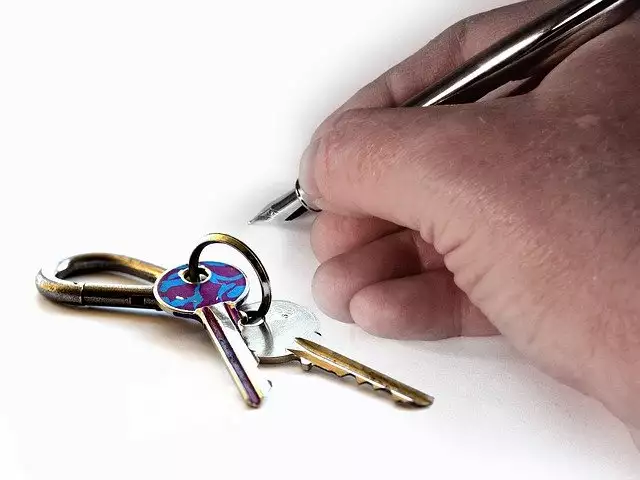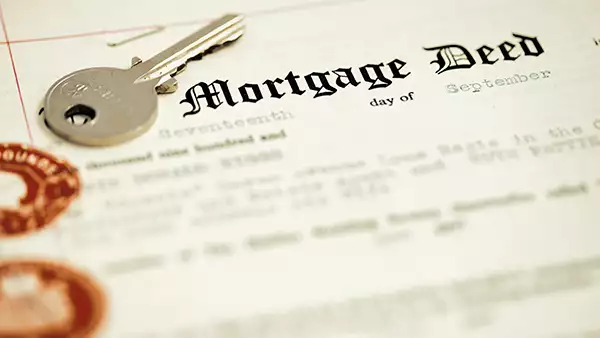10 Types Of Property Deed Restrictions You Should Know
At first glance, deed restrictions appear to be cumbersome rules designed to make the lives of homeowners more difficult. However, while they may be annoying, deed restrictions serve as an invaluable tool for maintaining uniformity and home values within a given neighborhood. Even common deed restrictions can improve entire communities, which begs the question: What is a deed restricted community?
The following was designed to introduce new homeowners to deed restrictions and help identify the most common rules homeowners are comforted with and how they impact homeownership.
What Are Deed Restrictions?
Deed restrictions are recorded agreements that limit how an individual piece of land may be used by its owners. In their simplest form, deed restrictions are exactly what they sound like: legally binding restrictions the landowner must abide by. Common deed restrictions are traditionally put in place to prevent homeowners from doing anything to jeopardize the value of properties in a community, like painting the home a divisive color or blocking a neighbors view with an unwelcome home addition. At their pinnacle, however, deed restrictions keep everyone on the same page. When implemented well, deed restrictions are invaluable tools used to protect home values in residential neighborhoods and to restrict unwelcome businesses in commercial zones.
[ Do you control your finances or are your finances controlling you? Register to attend our FREE online real estate class and find out how real estate investing can put you on the path toward financial independence. ]

10 Common Deed Restrictions You Should Know
Deed restrictions are as selective or abundant as the original underwriters want to make them. In other words, agreements may result in any number of restrictions placed on a deed—or none at all. Still, there are many restrictions that are more common than the rest of their counterparts. The following list represents not only some of the most common deed restrictions, but also the most important ones everyone should familiarize themselves with:
This list is not a comprehensive outline of every deed restriction but rather a list of the most important limitations buyers should be aware of before they close on a deal. Let’s dig a little deeper into each deed restriction and how they impact ownership.
1. Number Of Bedrooms
More common in some regions of the country than others, some deed restrictions place a strict limit on the number of bedrooms a residential home may have. While the limitation may sound like an incumbrance for prospective buyers at first, it was most likely put in place with homeowners’ best interest in mind. In particular, restrictions capping the number of rooms a home may have can preserve local home values. If for nothing else, room restrictions are put in place to enforce a uniform size between properties within a single neighborhood and prevent “larger” homes from dragging their smaller neighbors’ home values. Other times, room restrictions are put in place to accommodate sewer or septic capacity guidelines.
2. Pet & Animal Restrictions
Deed restrictions involving pets and animals are some of the most common restrictive covenants buyers have never heard of. Aptly named, however, pet and animal restrictions limit the types of pets and animals a property may legally harbor. Not surprisingly, the restrictions are once again put in place to maintain home values by ensuring neighbors won’t have to deal with unwelcome pets and animals. For example, in residential neighborhoods, it is common for pet and animal restrictions to prevent anyone from owning livestock like chickens, goats, and pigs. Limiting loud or smelly animals in residential neighborhoods decreases the likelihood of home value depreciation and increases peace of mind amongst communities. It is worth pointing out that these restrictions may also limit specific breeds of animals as well. While most neighborhoods allow dogs, some breeds may be added to a deed restriction.
3. Vehicle Restrictions
Vehicle restrictions are amongst the most common limitations homeowners will find written into their deeds. This particular deed restriction is intended to prevent a single home from cluttering a street with too many vehicles and unwanted eyesores. The presence of too many unwanted vehicles can drag down a neighborhood’s valuations if the automobiles become too much of a problem. As a result, homes are usually only allowed to park a certain amount of cars in the respective driveway or adjacent curbs.
4. Obstructing A Neighbor’s View
It has become common practice for many real estate transactions to include a deed restriction that prevents homeowners from obstructing neighbors’ views. Outside of serving as a common courtesy and a respectful nod to the neighbors, this particular restriction prevents homeowners from building any unwanted structures that may impair the views of anyone in the neighborhood. At the same time, this deed restriction also preserves home values by maligning sure neighbors don’t build any unwanted additions that could make neighbors less than happy.
5. Types Of Fencing
Most deed restrictions will dictate which types of walls and fences are suitable for a given neighborhood. To maintain property values, some restrictions will even prevent homes from installing chain link fences or very tall privacy fences. In addition to the types of fences, restrictions may also limit the height of said fences. Most fences placed in the front yard, for example, can’t exceed three to four feet. Backyard fences, on the other hand, are usually limited to about a maximum of six feet.
6. Home-Run Business Restrictions
A deed-restricted home can prevent owners from operating any sort of business on the premises. While it may seem unfair, common deed restrictions like this are implemented to maintain a more orderly neighborhood. If the business calls for a lot of foot traffic or deliveries, it’s entirely possible that the home could cause unwanted traffic and serve as an annoyance for subsequent neighbors. Additionally, some neighbors may not agree with the business itself, so many neighborhoods have agreed to keep their streets free of any business at all.
7. Color Palettes
One of the most widely used deed restrictions across the country has to do with the color of the home’s exterior. In particular, owners may only paint their homes with a color palette that has already been pre-approved. Once again, this is a restriction put in place to maintain uniformity and prevent anyone from disrupting the curb appeal of a given area. That said, the limited color palettes homeowners have to choose from aren’t only limited to paint. In many cases, homeowners will have to paint their homes using a pre-selected color palette, but there may also be rules stating the home must use a particular finish like stone or brick. Color palette restrictions can get incredibly detailed, and it’s in a homeowner’s best interest to abide by the rules.
8. Adjacent Structures
Adjacent structures, like sheds or detached garages, have become the target of many deed restrictions. While most homeowners will find them to be convenient and useful, neighbors may disagree. At the very least, it’s easy for an additional building to turn into an eyesore for neighbors. As a result, many deed restrictions won’t allow homeowners to build another structure on their land. If they aren’t forbidden outright, the rules that govern the installation of additional buildings may be strict.
9. Approval Plans
Some builders, developers, and HOAs will include themselves in subsequent deed restrictions so that they can influence any future plans for the property. For example, an HOA looking to maintain uniformity in a given neighborhood could stipulate that they need to approve any future renovations or additions on a home. In limiting the ability to change a home in any way, builders, developers, and HOAs can set strict standards for homeowners to live up to. In many cases, owners will need approval for everything—from the additions made to the materials used.
10. Tree Removal
Some deed restrictions are put in place to limit the number of trees removed from a property. The limitations will vary from the number of trees that may be removed to a strict no-removal clause. Some restrictions will state that owners will need to preserve a certain percentage of trees on the lot to maintain uniformity amongst the neighboring homes.

{ "@context": "https://schema.org", "@type": "FAQPage", "mainEntity": [{ "@type": "Question", "name": "What Is A Deed Restricted Community?", "acceptedAnswer": { "@type": "Answer", "text": "A deed restricted community is a development or specific neighborhood overseen by a homeowners association that enforces rules for each homeowner to abide by." } },{ "@type": "Question", "name": "How Long Do Deed Restrictions Last?", "acceptedAnswer": { "@type": "Answer", "text": "Deed restrictions are permanent unless otherwise stated in the underwriting." } },{ "@type": "Question", "name": "Can You Change Or Remove Deed Restrictions?", "acceptedAnswer": { "@type": "Answer", "text": "It is possible to remove a deed restriction, but that’s not to say it will be easy. For starters, anyone impacted by the current restriction will need to agree to have it removed." } }] }
Deed Restriction FAQs
If you are interested in a property with deed restrictions, it is crucial to gather all of the information you can before jumping into the situation. Here are some commonly asked questions about deed restrictions to help you learn more:
What Is A Deed Restricted Community?
A deed restricted community is a development or specific neighborhood overseen by a homeowners association that enforces rules for each homeowner to abide by. As always, the rules are strict, but they are almost always put in place to maintain local home values. If for nothing else, the HOA has a vested interest in the community and implements specific rules to maintain certain standards.
How Long Do Deed Restrictions Last?
Deed restrictions are permanent unless otherwise stated in the underwriting. Consequently, some restrictions may expire after a predetermined amount of time, or they may last forever. Despite their permanent nature, however, it is possible to have restrictions removed. With the proper consent, it may be possible for an owner to remove the restriction, especially if it has been deemed impractical or illegal.
Can You Change Or Remove Deed Restrictions?
It is possible to remove a deed restriction, but that’s not to say it will be easy. In fact, the act of removing a deed restriction can be very difficult, and sometimes impossible. For starters, anyone impacted by the current restriction will need to agree to have it removed. Gaining their blessing to remove the restriction will depend on whether or not they benefit from it. Obviously, those who benefit from it will be harder to persuade than those who don’t.
There are also rare circumstances in which a court order can have the restriction removed. Illegal, discriminatory, or impractical deed restrictions can be removed by a judge who finds them unfair. Sometimes a judge isn’t even necessary; the person who placed the restriction can have it removed if they don’t agree with it anymore.
Deed Restrictions Vs. Zoning Ordinances
While they are easy to confuse, deed restrictions are entirely different from local zoning ordinances. While the goal of each is to ultimately maintain the uniformity and status quo of a given area, the means to the end is completely different. Whereas deed restrictions are traditionally used to protect a specific interest in a community, zoning ordinances impact the community as a whole.
Specifically, zoning ordinances are implemented by the respective municipality and lay the foundation for how the entire community is laid out and operated. Additionally, any attempt to change a zoning ordinance will require a vote on behalf of the local planning board. Any owner can submit a request to change the zoning ordinance, but they will need to prove that the change is for the betterment of the community, and the change will need to pass a vote.
How To Identify Deed Restrictions On A Property
Deed restrictions can drastically impact homeownership, so prospective buyers need to know exactly what they are getting into before closing a deal. Fortunately, there are more than a few ways to find out if the subject property has any existing limitations the buyer needs to know about:
Consult An Agent Or Realtor: With a quick look at previous listings, a qualified real estate agent or Realtor may be able to determine if there are any existing restrictions on the property. If the listings don’t identify any deed restrictions, agents and Realtors can try to identify any restrictions listed on the property record.
Talk To The Title Company: Title searches will always reveal any deed restrictions associated with a property. Therefore, consult with the title company to confirm whether or not there are any restrictions to abide by before making the purchase.
Set Up An Appointment With The HOA: In the event the home belongs to an HOA, talking with the organization responsible for the restriction will reveal any deed restrictions worth knowing about.
Speak To The Municipal Clerk: Public property records are kept on file at the offices of local municipality workers. Municipal clerks and urban planning departments, for example, may have the information you are looking for.
Deed Restrictions On Commercial Real Estate
Not unlike residential housing, commercial real estate will use deed restrictions to maintain uniformity and protect property valuations. That said, restrictions for commercial real estate tend to be less specific in commercial areas to have a broader impact. More often than not, however, commercial deed restrictions focus on maintaining a competitive advantage. It is common for a commercial deed restriction to prevent competing businesses from moving into the same complex. The idea is to protect businesses and make them feel more comfortable signing a lease in a commercial building.
Summary
On the surface, deed restrictions look to be nothing more than prohibitive rules homeowners must legally abide by. However, a deeper dive into their real purpose will reveal an attempt to maintain both uniformity and home valuations in the neighborhoods they govern. Thanks to deed restrictions, homeowners that are part of a community can rest assured that ill-advised decisions made by their neighbors won’t harm the value of their own homes. It is worth noting, however, that not all deed restrictions are created equal. Prospective buyers need to know what they are getting into before deciding to close on a new home. Hopefully, this article will serve as an introduction to what deed restrictions are and help new homeowners keep an eye out for the limitations their own deeds have.
Interested in learning more about today's most lucrative real estate strategies?
Whether you’re brand new to investing, have closed a few deals, or are a seasoned investor— our new online real estate class reveals the best real estate strategies to get started with real estate investing in today's market. Expert investor Than Merrill explains how these time-tested strategies can help you to profit from the current opportunities in real estate.
Register for our FREE 1-Day Real Estate Webinar and get started learning how to strategically invest in today’s real estate market!







